Richard L. Daft - Management. 9th ed., 2010
Подождите немного. Документ загружается.


PART 5 LEADING390
Personality differences among employees make the
life of a new manager interesting—and sometimes
exasperating. Consultant Deborah Hildebrand took a
lighthearted look at this issue by comparing the man-
ager to a ringmaster at the circus. Here are a few of
the “performers” managers encounter:
▪ The Lion Tamer. These people are ercely
independent and like to be in control. They are
willing to tackle the biggest, toughest projects
but aren’t typically good team players. The
manager can give lion tamers some freedom, but
make sure they understand who is ultimately in
charge. Lion tamers crave recognition. Praising
them for their accomplishments is a sure way
to keep them motivated and prevent them from
acting out to draw attention to themselves.
▪ The Clown. Everybody loves him (or her), but
the clown tends to goof off a little too much,
as well as disrupt the work of others. Keeping
this person focused is the key to keeping him or
her productive. A little micromanaging can be
a good thing with a clown. It’s also good to put
clowns in jobs where socializing is a key to pro-
ductivity and success.
▪ Sideshow Performers. These are the knife throw-
ers, re eaters, and sword swallowers. They
have unique strengths and skills but tend to get
overwhelmed with broad projects. These folks
are expert team members because they like to
combine their talents with others to make up a
whole. Don’t ask a sideshow performer to do a
lion tamer’s job.
This list is intended to be humorous, but in the real
world of management, working with different per-
sonalities isn’t always a laughing matter. Differences
at work can create an innovative environment but
also lead to stress, con ict, and bad feelings. Manag-
ers can learn to work more effectively with different
personality types by following some simple tips.
1. Understand your own personality and how you
react to others. Try to avoid judging people
based on limited knowledge. Realize that every-
one has many facets to their personality.
2. Treat everyone with respect. People like to be
accepted and appreciated for who they are.
Even if you nd someone’s personality grating,
remain professional and keep your frustration
and irritation to yourself.
3. When leading a team or group, make sure
everyone has an equal chance to participate.
Don’t let the outgoing members dominate the
scene.
4. Remember that everyone wants to t in. No
matter their personalities, people typically take
on behavior patterns that are the norm for their
environment. Managers can create norms that
keep everyone focused on positive interactions
and high performance.
SOURCES: Based on Deborah S. Hildebrand, “Managing
Different Personalities,” Suite101.com (June 25, 2007), http://
businessmanagement.suite101.com/article.cfm/manag-
ing_different_personalities; Jamie Walters and Sarah Fenson,
“Building Rapport with Different Personalities,” Inc.com
(March 2000), http://www.inc.com/articles/2000/03/17713
.html; Tim Millett, “Learning to Work with Different Personal-
ity Types,” http://ezinearticles.com/?Learning-To-Work-With-
Different-Personality-Types&id=725606; and Carol Ritberter,
“Understanding Personality: The Secret to Managing People,”
http://www.dreammanifesto.com/understanding-personality-
the-secret-of-managing-people.html (accessed April 17, 2008).
Bridging the Personality Gap
Manager’sShoptalk
They are better able to handle complex information and problem solving, are more
achievement oriented, but are also more independent and therefore more dif cult to
manage. By contrast, people with an external locus of control are harder to motivate,
less involved in their jobs, more likely to blame others when faced with a poor per-
formance evaluation, but more compliant and conforming and, therefore, easier to
manage.
30
Do you believe luck plays an important role in your life, or do you feel that you
control your own fate? To nd out more about your locus of control, read the instruc-
tions and complete the questionnaire in Exhibit 13.7.
Authoritarianism Authoritarianism is the belief that power and status differences
should exist within the organization.
31
Individuals high in authoritarianism tend to
be concerned with power and toughness, obey recognized authority above them,
a
a
a
a
a
aut
h
oritarianism Th
e
be
li
e
f
f
t
t
t
h
ha
h
ha
t
t
tp
t
p
owe
owe
ra
r
a
nd
nd
sta
sta
tus
tus
di
di
ffe
ffe
r
r
-
e
e
e
en
nc
e
e
e
c
es
es
h
s
h
o
ld
u
ld
e
x
e
ist wi
h
t
h
in
t
t
h
h
e
o
o
o
o
or
r
g
i
an
i
zat
i
i
on.
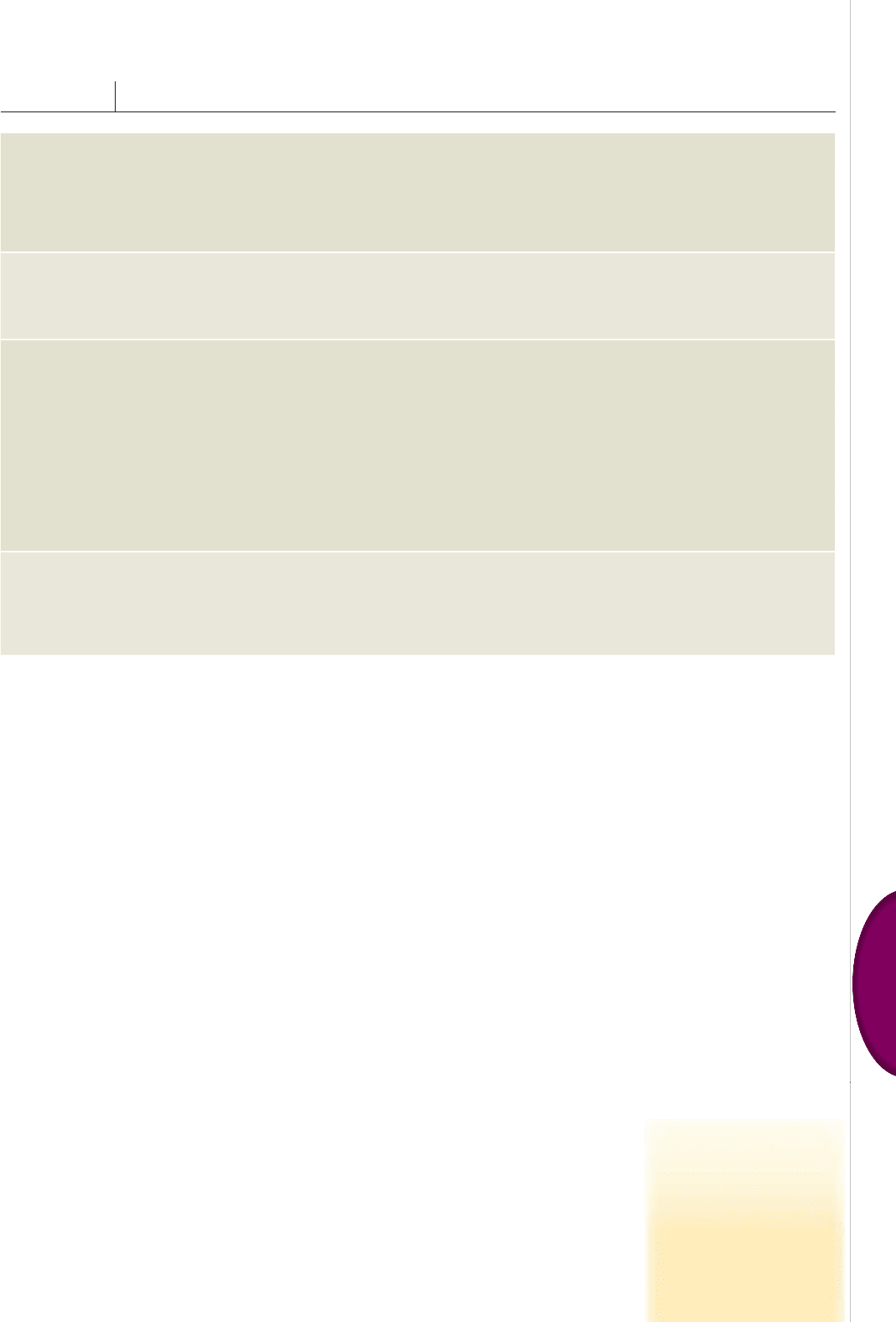
CHAPTER 13 DYNAMICS OF BEHAVIOR IN ORGANIZATIONS 391
5
Leading
stick to conventional values, critically judge others, and oppose the use of subjective
feelings. The degree to which managers possess authoritarianism will in uence how
they wield and share power. The degree to which employees possess authoritarianism
will in uence how they react to their managers. If a manager and employees differ in
their degree of authoritarianism, the manager may have dif culty leading effectively.
The trend toward empowerment and shifts in expectations among younger employ-
ees for more equitable relationships contribute to a decline in strict authoritarianism
in many organizations.
Machiavellianism Another personality dimension that is helpful in understand-
ing work behavior is Machiavellianism, which is characterized by the acquisition
of power and the manipulation of other people for purely personal gain. Machiavel-
lianism is named after Niccolo Machiavelli, a sixteenth-century author who wrote
The Prince, a book for noblemen of the day on how to acquire and use power.
32
Psy-
chologists developed instruments to measure a person’s Machiavellianism (Mach)
orientation.
33
Research shows that high Machs are predisposed to being pragmatic,
capable of lying to achieve personal goals, more likely to win in win-lose situations,
and more likely to persuade than be persuaded.
34
Different situations may require people who demonstrate one or the other type of
behavior. In loosely structured situations, high Machs actively take control, while low
Machs accept the direction given by others. Low Machs thrive in highly structured
situations, while high Machs perform in a detached, disinterested way. High Machs
are particularly good in jobs that require bargaining skills or that involve substantial
rewards for winning.
35
EXHIBIT 13.7 Measuring Locus of Control
Your Locus of Control
This questionnaire is designed to measure locus-of-control beliefs. Researchers using this questionnaire in a study of college students
found a mean of 51.8 for men and 52.2 for women, with a standard deviation of 6 for each. The higher your score on this question-
naire, the more you tend to believe that you are generally responsible for what happens to you; in other words, higher scores are as-
sociated with internal locus of control. Low scores are associated with external locus of control. Scoring low indicates that you tend to
believe that forces beyond your control, such as powerful other people, fate, or chance, are responsible for what happens to you.
For each of these 10 questions, indicate the extent to which you agree or disagree using the following scale:
1 strongly disagree 4 neither disagree nor agree 7 strongly agree
2 disagree 5 slightly agree
3 slightly disagree 6 agree
1. When I get what I want, it is usually because I worked hard for it. 1 2 3 4 5 6 7
2. When I make plans, I am almost certain to make them work. 1 2 3 4 5 6 7
3. I prefer games involving some luck over games requiring pure skill. 1 2 3 4 5 6 7
4. I can learn almost anything if I set my mind to it. 1 2 3 4 5 6 7
5. My major accomplishments are entirely due to my hard work and ability. 1 2 3 4 5 6 7
6. I usually don’t set goals because I have a hard time following through on them. 1 2 3 4 5 6 7
7. Competition discourages excellence. 1 2 3 4 5 6 7
8. Often people get ahead just by being lucky. 1 2 3 4 5 6 7
9. On any sort of exam or competition, I like to know how well I do relative to everyone else. 1 2 3 4 5 6 7
10. It’s pointless to keep working on something that’s too diffi cult for me. 1 2 3 4 5 6 7
Scoring and Interpretation
To determine your score, reverse the values you selected for questions 3, 6, 7, 8, and 10 (1 7, 2 6, 3 5, 4 4, 5 3, 6 2, 7 1).
For example, if you strongly disagree with the statement in question 3, you would have given it a value of 1. Change this value to a 7.
Reverse the scores in a similar manner for questions 6, 7, 8, and 10. Now add the point values for all 10 questions together.
Your score ________
SOURCES: Adapted from J. M. Burger, Personality: Theory and Research (Belmont, CA: Wadsworth, 1986): 400–401, cited in D. Hellriegel, J.W. Slocum, Jr., and R.W.Woodman,
Organizational Behavior, 6th ed. (St. Paul, MN: West, 1992): 97–100. Original source: D. L. Paulhus,“Sphere-Specifi c Measures of Perceived Control,”Journal of Personality and Social
Psychology, 44, 1253–1265.
M
M
M
M
M
Mac
hi
a
v
e
lli
a
ni
s
m Th
e
te
n
-
d
d
d
d
d
d
en
d
c
y
to direct much of one’s
b
b
b
b
e
h
avior towar
d
t
h
e ac
q
u
q
isitio
n
n
n
o
o
o
o
f
o
o
power an
d
t
h
e manipu
l
atio
n
n
o
o
o
o
f
o
o
ot
h
er
p
eo
p
pl
e
p
f
or
p
p
ersona
l
g
g
g
g
gai
g
g
gai
n
n
.
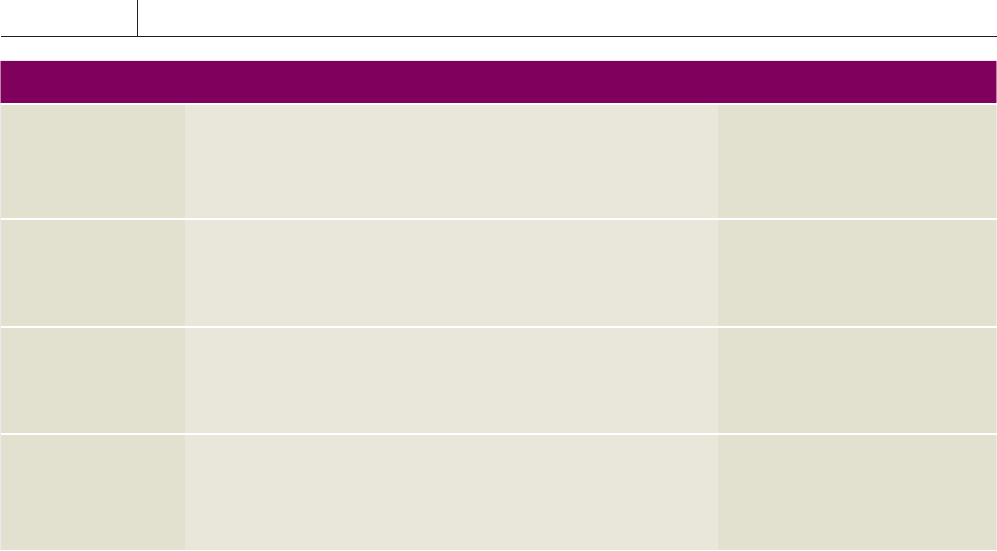
PART 5 LEADING392
Problem-Solving Styles and the Myers–Briggs Type Indicator Managers
also need to realize that individuals solve problems and make decisions in different
ways. One approach to understanding problem-solving styles grew out of the work
of psychologist Carl Jung. Jung believed differences resulted from our preferences in
how we go about gathering and evaluating information.
36
According to Jung, gath-
ering information and evaluating information are separate activities. People gather
information either by sensation or intuition, but not by both simultaneously. Sensa-
tion-type people would rather work with known facts and hard data and prefer
routine and order in gathering information. Intuitive-type people would rather look
for possibilities than work with facts and prefer solving new problems and using
abstract concepts.
Evaluating information involves making judgments about the information a per-
son has gathered. People evaluate information by thinking or feeling. These repre-
sent the extremes in orientation. Thinking-type individuals base their judgments on
impersonal analysis, using reason and logic rather than personal values or emotional
aspects of the situation. Feeling-type individuals base their judgments more on per-
sonal feelings such as harmony and tend to make decisions that result in approval
from others.
According to Jung, only one of the four functions—sensation, intuition, thinking,
or feeling—is dominant in an individual. However, the dominant function usually is
backed up by one of the functions from the other set of paired opposites. Exhibit 13.8
shows the four problem-solving styles that result from these matchups, as well as
occupations that people with each style tend to prefer.
Two additional sets of paired opposites not directly related to problem solving are
introversion–extroversion and judging–perceiving. Introverts gain energy by focusing on
personal thoughts and feelings, whereas extroverts gain energy from being around
others and interacting with others. On the judging versus perceiving dimension, peo-
ple with a judging preference like certainty and closure and tend to make decisions
quickly based on available data. Perceiving people, on the other hand, enjoy ambigu-
ity, dislike deadlines, and may change their minds several times as they gather large
amounts of data and information to make decisions.
Personal Style Action Tendencies Likely Occupations
Sensation-Thinking • Emphasizes details, facts, certainty
• Is a decisive, applied thinker
• Focuses on short-term, realistic goals
• Develops rules and regulations for judging performance
• Accounting
• Production
• Computer programming
• Market research
• Engineering
Intuitive-Thinking • Prefers dealing with theoretical or technical problems
• Is a creative, progressive, perceptive thinker
• Focuses on possibilities using impersonal analysis
• Is able to consider a number of options and problems
simultaneously
• Systems design
• Systems analysis
• Law
• Middle/top management
• Teaching business, economics
Sensation-Feeling • Shows concern for current, real-life human problems
• Is pragmatic, analytical, methodical, and conscientious
• Emphasizes detailed facts about people rather than tasks
• Focuses on structuring organizations for the benefi t of people
• Directing supervisor
• Counseling
• Negotiating
• Selling
• Interviewing
Intuitive-Feeling • Avoids specifi cs
• Is charismatic, participative, people oriented, and helpful
• Focuses on general views, broad themes, and feelings
• Decentralizes decision making, develops few rules and regulations
• Public relations
• Advertising
• Human Resources
• Politics
• Customer service
EXHIBIT 13.8 Four Problem-Solving Styles

CHAPTER 13 DYNAMICS OF BEHAVIOR IN ORGANIZATIONS 393
5
Leading
A widely used personality test that measures how people differ on all four of
Jung’s sets of paired opposites is the Myers–Briggs Type Indicator (MBTI). The
MBTI measures a person’s preferences for introversion versus extroversion, sen-
sation versus intuition, thinking versus feeling, and judging versus perceiving.
The various combinations of these four preferences result in 16 unique personality
types.
Go to the experiential exercise on pages 400–402 that pertains to evaluating your
Myers–Briggs personality type.
Each of the 16 different personality types can have positive and negative con-
sequences for behavior. Based on the limited research that has been done, the two
preferences that seem to be most strongly associated with effective management
in a variety of organizations and industries are thinking and judging.
37
However,
people with other preferences can also be good managers. One advantage of under-
standing your natural preferences is to maximize your innate strengths and abilities.
Dow Chemical manager Kurt Swogger believes the MBTI can help put people in the
right jobs—where they will be happiest and make the strongest contribution to the
organization.
When Kurt Swogger arrived at Dow Chemical’s plastics business in 1991, it took anywhere
from 6 to 15 years to launch a new product—and the unit hadn’t launched a single one for
3 years. Ten years later, a new product launch took just 2 to 4 years, and Swogger’s R&D team
was launching hit after hit.
What changed? “The biggest obstacle to launching great new products was not having
the right people in the right jobs,” says Swogger. He began reassigning people based on his
intuition and experience, distinguishing pure inventors from those who could add value later
in the game and still others who were best at marketing the new products. Swogger says he
was right-on about 60 percent of the time. If someone didn’t work out after six months, he’d
put him or her in another assignment.
Seeking a better way to determine people’s strengths, Swogger began using the Myers–
Briggs Type Indicator (MBTI), predicting which types would be best suited to each stage
of the product development and launch cycles. After administering the test to current and
former Dow plastics employees, he found some startling results. In 1991, when Swogger
came on board, the match between the right personality type and the right role was only
29 percent. By 2001, the rate had jumped to 93 percent. Swogger’s next step was to admin-
ister the MBTI to new hires, so he could immediately assign people to jobs that matched
their natural thinking and problem-solving styles, leading to happier employees and higher
organizational performance.
38
Other organizations also use the MBTI, with 89 of the Fortune 100 companies
recently reporting that they use the test in hiring and promotion decisions.
39
Putting
the right people in the right jobs is a vital skill for managers, whether they do it based
on intuition and experience or by using personality tests such as the MBTI.
Person–Job Fit
An important responsibility of managers is to try to match employee and job char-
acteristics so that work is done by people who are well suited to do it. The extent to
which a person’s ability and personality match the requirements of a job is called
person–job t. When managers achieve person–job t, employees are more likely to
contribute and have higher levels of job satisfaction and commitment.
40
The impor-
tance of person–job t became apparent during the dot-com heyday of the late 1990s.
People who rushed to Internet companies in hopes of nding a new challenge—or
making a quick buck—found themselves oundering in jobs for which they were
TakeaMoment
M
M
M
M
M
M
Mye
rs–Bri
gg
s T
y
pe Indica
-
t
t
t
t
t
or
(
MBTI
)
Personality
t
t
t
e
e
s
t
t that measures a
p
erson’s
p
p
p
p
reference for introversion
v
v
v
v
v
vs
s
.
v
ex
t
t
rover
i
s
i
on
,
sen
t
sa
t
i
i
on vs.
i
i
i
in
n
n
t
i
uition, t
h
in
k
in
g
vs.
f
ee
l
in
g
,
a
a
a
an
nd
a
ju
d
ging vs. perceiving
.
p
p
p
p
p
erson–job fi
t
T
h
e
e
x
te
n
t
to
w
w
w
w
w
w
w
hich a person’s abilit
y
and
p
p
p
p
p
ersonalit
y
match the require-
m
m
m
m
m
m
ents o
f
a
j
o
b.
Dow Chemical
Innovative Way

PART 5 LEADING394
unsuited. One manager recruited by a lead-
ing executive search rm lasted less than
two hours at his new job. The search rm,
a division of Russell Reynolds Associates,
later developed a “Web Factor” diagnostic
to help determine whether people have the
right personality for dot-com jobs, includ-
ing such things as a tolerance for risk and
uncertainty, an obsession with learning,
and a willingness to do whatever needs
doing, regardless of job title.
41
A related concern is person–environment
t, which looks not only at whether the per-
son and job are suited to one another but
also at how well the individual will t in
the overall organizational environment.
An employee who is by nature strongly
authoritarian, for example, would have a
hard time in an organization such as W. L.
Gore and Associates, which has few rules,
no hierarchy, no xed or assigned authority, and no bosses. Many of today’s organi-
zations pay attention to person–environment t from the beginning of the recruit-
ment process. Texas Instruments’ Web page includes an area called Fit Check that
evaluates personality types anonymously and gives a prospective job candidate the
chance to evaluate whether he or she would be a good match with the company.
42
LEARNING
Years of schooling condition many of us to think that learning is something students
do in response to teachers in a classroom. With this view, in the managerial world of
time deadlines and concrete action, learning seems remote—even irrelevant. How-
ever, successful managers need speci c
knowledge and skills as well as the ability
to adapt to changes in the world around
them. Managers have to learn. Learning is
a change in behavior or performance that
occurs as the result of experience. Two indi-
viduals who undergo similar experiences—
for example, a business transfer to a foreign
country—probably will differ in how they
adapt their behaviors to (that is, learn from)
the experience. In other words, each person
learns in a different way.
The Learning Process
One model of the learning process, shown
in Exhibit 13.9, depicts learning as a four-
stage cycle.
43
First, a person encounters a
concrete experience. This event is followed
by thinking and re ective observation,
which lead to abstract conceptualization
and, in turn, to active experimentation.
The results of the experimentation generate
new experiences, and the cycle repeats. The
Jenny Craig, the pioneering weight-loss company,
believes in continuous learning for both employees and clients. Its program combines
Web-based tools with more traditional methods, including videos and sessions led
by instructors, such as trainer Jeri Dawn Martel, shown here. Employees undergo an
extensive orientation, as well as several days of training each time they assume new
responsibilities. In addition, headquarters provides over 600 centers with product and
services updates for their semimonthly staff meetings and in-depth training materials
for quarterly continuing education courses.
© TIM BOYLE/GETTY IMAGES
l
l
l
l
le
le
lea
rnin
g
A
Ac
A
c
h
han
han
ge
ge
ge
g
i
in
in
bh
beh
beh
av
av-
av
i
i
i
io
o
o
o
r or per
f
ormance t
h
at occurs
a
a
a
a
as
as
as
s
t
h
e resu
l
t o
f
ex
p
e
p
rience
.
Andrew Field, who owns a $25 million printing services
company, PrintingForLess.com, uses dogs to help him create the person-environment fi t
when hiring new employees. The dog-friendly policy started at the company’s inception
when Field began bringing his Border collie and black Labrador mix Jessie (far left) to
work on a daily basis. The idea caught on and now as many as fi fteen dogs frequent the
offi ce with their owners. With rules such as owner accountability, a dog review board,
and a dog-approval process, employees fi nd the dogs are a great release for stress. Fields
says that the dog policy helps him make good hires; candidates who respond favorably
to the canine rule are likely to fi t in with the offi ce culture.
COURTESY, PRINTINGFORLESS
© LYNN DONALDSON
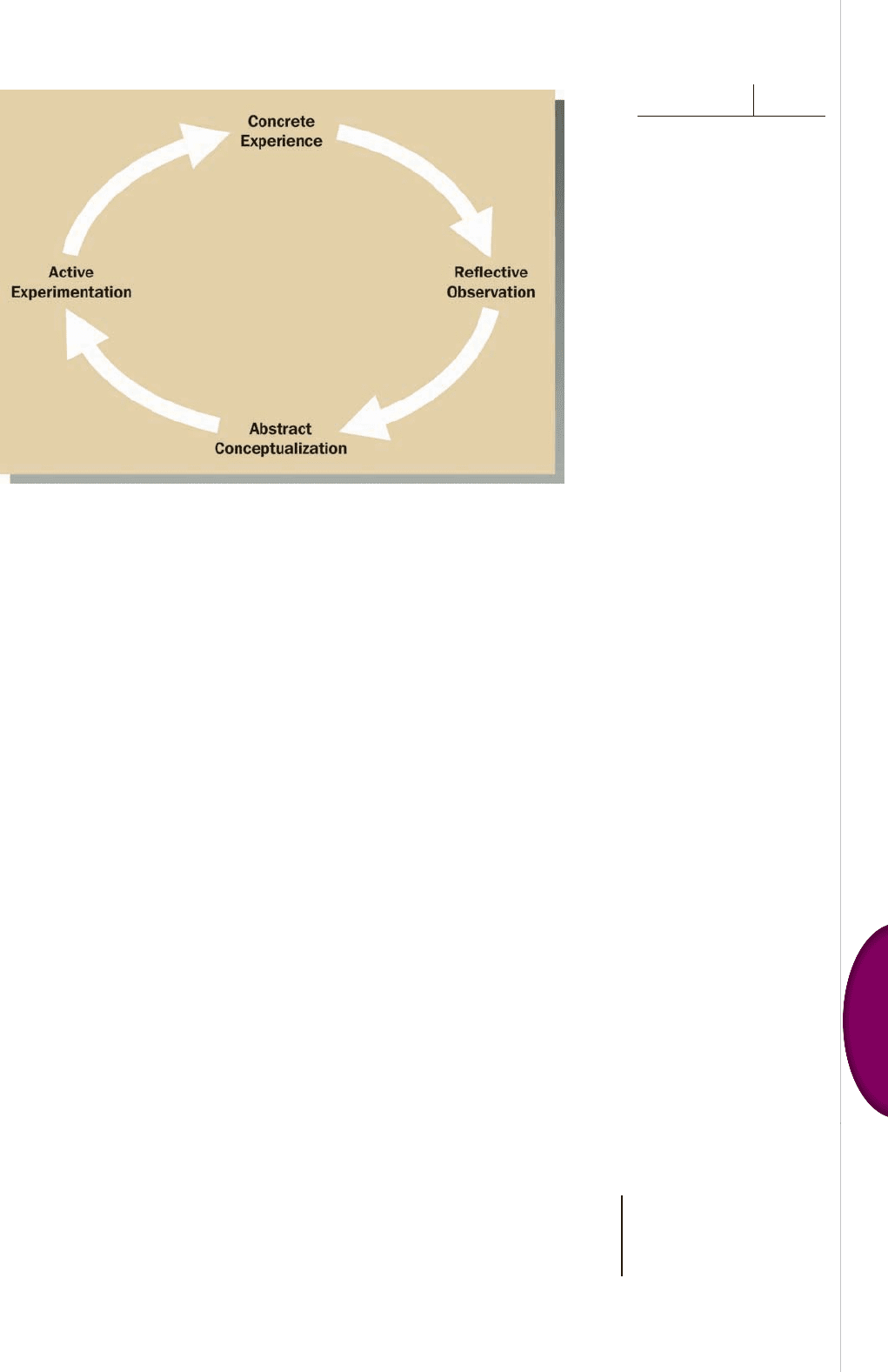
CHAPTER 13 DYNAMICS OF BEHAVIOR IN ORGANIZATIONS 395
5
Leading
arrows in the model indicate that this process is a recurring cycle. People continually
test their conceptualizations and adapt them as a result of their personal re ections
and observations about their experiences.
Learning Styles
Individuals develop personal learning styles that vary in terms of how much they
emphasize each stage of the learning cycle. These differences occur because the learn-
ing process is directed by individual needs and goals. For example, an engineer might
place greater emphasis on abstract concepts, while a salesperson might emphasize
concrete experiences. Because of these preferences, personal learning styles typically
have strong and weak points.
Questionnaires can assess a person’s strong and weak points as a learner by mea-
suring the relative emphasis the person places on each of the four learning stages
shown in Exhibit 13.9: concrete experience, re ective observation, abstract conceptu-
alization, and active experimentation. Some people have a tendency to overempha-
size one stage of the learning process or to avoid some aspects of learning. Not many
people have totally balanced pro les, but the key to effective learning is competence
in each of the four stages when it is needed.
Researchers have identi ed four fundamental learning styles, outlined in
Exhibit 13.10, labeled Diverger, Assimilator, Converger, and Accommodator. Each
style combines elements of the four stages of the learning cycle.
44
The exhibit lists
some questions that can help you understand your dominant learning abilities and
identi es some occupations you might enjoy based on your dominant style. For
example, people whose dominant style is Accommodator are often drawn to sales
and marketing. Those with a primarily Diverger style might enjoy human resource
management.
As a new manager, determine your natural learning style to understand how you
approach problems, use your learning strengths, and better relate to people who
have different styles. As you grow in your management responsibilities, strive for a
balance among the four learning stages shown in Exhibit 13.9.
TakeaMoment
EXHIBIT 13.9
The Experiential Learning
Cycle

PART 5 LEADING396
STRESS AND STRESS MANAGEMENT
Now let’s turn our attention to a problem almost every manager will encounter at
some time in his or her career: workplace stress. Formally de ned, stress is an indi-
vidual’s physiological and emotional response to external stimuli that place physical
or psychological demands on the individual and create uncertainty and lack of per-
sonal control when important outcomes are at stake.
45
These stimuli, called stressors,
produce some combination of frustration (the inability to achieve a goal, such as the
inability to meet a deadline because of inadequate resources) and anxiety (such as
the fear of being disciplined for not meeting deadlines).
Go to the ethical dilemma on page 403 that pertains to organizational sources of
stress.
People’s responses to stressors vary according to their personalities, the resources
available to help them cope, and the context in which the stress occurs. When the
level of stress is low relative to a person’s coping resources, stress can be a positive
force, stimulating desirable change and achievement. However, too much stress is
associated with many negative consequences, including sleep disturbances, drug and
alcohol abuse, headaches, ulcers, high blood pressure, and heart disease. People who
are experiencing the ill effects of too much stress may become irritable or withdraw
from interactions with their coworkers, take excess time off, and have more health
problems. In the United States, an estimated one million people each day don’t show
up for work because of stress.
46
Similarly, a survey in the United Kingdom found
that 68 percent of nonmanual workers and 42 percent of manual workers reported
missing work because of stress-related illness.
47
Just as big a problem for organiza-
tions as absenteeism is presenteeism, which refers to people who go to work but are
too stressed and distracted to be productive.
48
Clearly, too much stress is harmful to
employees as well as to companies.
TakeaMoment
Learning
Style Type
Dominant
Learning Abilities Is This Your Style? You Might Be Good At:
Diverger • Concrete experience
• Refl ective observation
• Are you good at generating ideas, seeing a
situation from multiple perspectives, and
being aware of meaning and value?
• Are you interested in people, culture, and
the arts?
• Human resource management
• Counseling
• Organization development
specialist
Assimilator • Abstract conceptualization
• Refl ective observation
• Are you good at inductive reasoning, cre-
ating theoretical models, and combining
disparate observations into an integrated
explanation?
• Do you tend to be less concerned with
people than ideas and abstract concepts?
• Research
• Strategic planning
Converger • Abstract conceptualization
• Active experimentation
• Are you good at making decisions, the
practical application of ideas, and hypo-
thetical deductive reasoning?
• Do you prefer dealing with technical tasks
rather than interpersonal issues?
• Engineering
Accommodator • Concrete experience
• Active experimentation
• Are you good at implementing decisions,
carrying out plans, and getting involved in
new experiences?
• Do you tend to be at ease with people
but are sometimes seen as impatient or
pushy?
• Marketing
• Sales
EXHIBIT 13.10 What’s Your Learning Style?
s
s
s
s
s
str
ess
A
p
hy
sio
l
o
g
ica
l
a
a
a
an
nd
an
nd
em
em
oti
oti
ona
ona
lr
l
r
esp
esp
ons
ons
et
e
t
o
o
s
s
st
ti
s
st
ti
s
mul
mul
it
i
t
hat
hat
pl
pl
ace
ace
ph
ph
ysi
ysi
cal
cal
or
or
p
p
p
p
sy
p
p
sy
cho
cho
log
log
ica
ica
ld
l
d
ema
ema
nds
nds
on
on
an
an
i
i
in
n
n
n
dividual.

CHAPTER 13 DYNAMICS OF BEHAVIOR IN ORGANIZATIONS 397
5
Leading
Type A and Type B Behavior
Researchers observed that some people seem to be more vulnerable than others to
the ill effects of stress. From studies of stress-related heart disease, they categorized
people as having behavior patterns called Type A and Type B.
49
The Type A behavior
pattern includes extreme competitiveness, impatience, aggressiveness, and devotion
to work. In contrast, people with a Type B behavior pattern exhibit less of these
behaviors. They consequently experience less con ict with other people and a more
balanced, relaxed lifestyle. Type A people tend to experience more stress-related ill-
ness than Type B people.
Most Type A individuals are high-energy people and may seek positions of power
and responsibility. By pacing themselves and learning control and intelligent use of
their natural high-energy tendencies, Type A individuals can be powerful forces
for innovation and leadership within their organizations. However, many Type A
personalities cause stress-related problems for themselves, and sometimes for those
around them. Type B individuals typically live with less stress unless they are in
high-stress situations. A number of factors can cause stress in the workplace, even for
people who are not naturally prone to high stress.
Causes of Work Stress
Workplace stress is skyrocketing worldwide. The World Congress on Health and
Safety at Work presented studies suggesting that job-related stress may be as big a
danger to the world’s people as chemical and biological hazards.
50
The number of
people in the United States who say they are overworked grew from 28 percent in
2001 to 44 percent in 2005, and one-third of Americans between the ages of 25 and
39 say they feel burned out by their jobs. Surveys in Canada consistently peg work
as the top source of stress for people in that country. In India, growing numbers of
young software professionals and call-center workers are falling prey to depression,
anxiety, and other mental illnesses because of increasing workplace stress.
51
And in
France, companies did some serious soul searching after the notes of three engineers
who committed suicide within ve months implied that workplace stress was a major
factor in their decision to end their lives.
52
Most people have a general idea of what a stressful job is like: dif cult, uncomfort-
able, exhausting, even frightening. Managers can better cope with their own stress
and establish ways for the organization to help employees cope if they de ne the
conditions that tend to produce work stress. One way to identify work stressors is to
think about stress caused by the demands of job tasks and stress caused by interper-
sonal pressures and con icts.
▪ Task demands are stressors arising from the tasks required of a person holding a
particular job. Some kinds of decisions are inherently stressful: those made under
time pressure, those that have serious consequences, and those that must be made
with incomplete information. For example, emergency room doctors are under
tremendous stress as a result of the task demands of their jobs. They regularly
have to make quick decisions based on limited information that may determine
whether a patient lives or dies. Almost all jobs, especially those of managers, have
some level of stress associated with task demands. Task demands also sometimes
cause stress because of role ambiguity, which means that people are unclear
about what task behaviors are expected of them.
▪ Interpersonal demands are stressors associated with relationships in the organiza-
tion. Although in some cases interpersonal relationships can alleviate stress, they
also can be a source of stress when the group puts pressure on an individual or
when con icts arise between individuals. Managers can resolve many con icts
using techniques that will be discussed in Chapter 17.
Role con ict occurs when
an individual perceives incompatible demands from others. Managers often feel
role con ict because the demands of their superiors con ict with those of the
T
T
T
T
T
Ty p
e A behavior Be
h
avior
p
p
p
p
at
p
tern characterized by
e
e
e
e
ex
x
t
e
reme com
p
et
i
t
i
veness,
i
i
im
m
m
p
i
at
i
ence, a
gg
ress
i
veness,
a
a
a
an
nd
de
v
ot
i
o
n
to
w
o
rk.
T
T
T
T
Ty
pe B behavior
Bh
B
e
h
i
av
i
or
p
p
p
p
p
at
p
tern that lacks Type A char-
a
a
a
ac
ct
ac
ct
eri
eri
sti
sti
cs
cs
and
and
in
in
clu
clu
des
des
a
a
mor
mor
e
e
b
b
b
b
b
al
b
anced, relaxed lifest
y
le.
r
r
r
r
r
o
l
e am
b
i
g
uit
y
U
ncer
-
t
t
t
a
a
inty a
b
out w
h
at
b
e
h
aviors
a
a
a
a
ar
r
e ex
p
ected of a
p
erson in a
p
p
p
p
p
articular role.
R
R
R
R
R
o
l
e con
fl
ic
t
Incompati
bl
e
d
d
d
d
d
d
eman
d
s o
f
d
i
ff
erent ro
l
es.
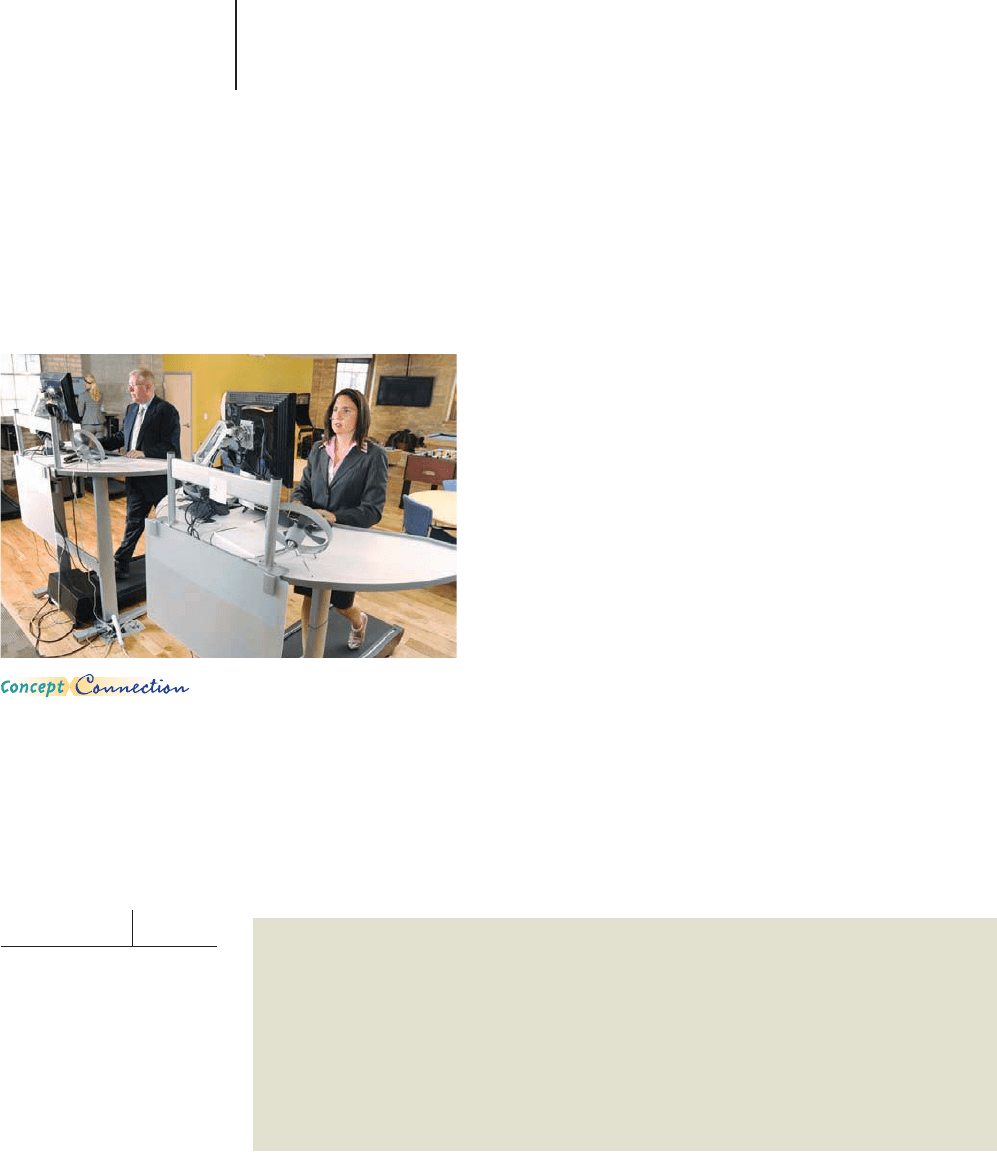
PART 5 LEADING398
employees in their department. They may be expected to support employees and
provide them with opportunities to experiment and be creative, while at the same
time top executives are demanding a consistent level of output that leaves little
time for creativity and experimentation.
As a new manager, learn to recognize the conditions that cause stress in the work-
place and then change what you can to alleviate unnecessary or excessive stress for
employees. Remember that not all stress is negative, but try to help people manage
stress in a healthy way.
Innovative Responses to Stress Management
Organizations that want to challenge their employees and stay competitive will never
be stress-free, but healthy workplaces promote the physical and emotional well-being
of their employees. Managers have direct control over many of the things that cause
people stress, including their own behavior. Exhibit 13.11 lists some of the top things
managers do to cause excessive and unnecessary stress.
A variety of techniques can help individuals manage
stress. Among the most basic strategies are those that help
people stay healthy: exercising regularly, getting plenty
of rest, and eating a healthful diet. Although individuals
can pursue stress management strategies on their own,
today’s enlightened companies support healthy habits to
help people manage stress and be more productive. Stress
costs businesses billions of dollars a year in absenteeism,
lower productivity, staff turnover, accidents, and higher
health insurance and workers’ compensation costs.
53
Tak-
ing care of employees has become a business as well as an
ethical priority. In Britain, employers are required to meet
certain minimal conditions to manage workplace stress,
such as ensuring that employees are not exposed to a poor
physical work environment, have the necessary skills and
training to meet their job requirements, and are given a
chance to offer input into the way their work is done.
54
Helping employees manage stress can be as simple
as encouraging people to take regular breaks and vaca-
tions. Consider that more than a third of U.S. employees
surveyed by the Families and Work Institute currently
don’t take their full allotment of vacation time.
55
Here are
TakeaMoment
Many companies help employees
manage stress by offering discounts to local gyms. At SALO, LLC,
a fi nancial staffi ng fi rm in Minneapolis, employees can exercise as
they work. Here, co-owners Amy Langer and John Folkstead walk as
they meet. Langer and Folkstead experimented with a few treadmill
desks to help get their employees and themselves moving more. The
desks were such a hit with the staff that they installed twelve more
stations. Employees report they have more energy and have lost
weight since the treadmill desks were installed.
© PETE CROUSER/SALO LLC
EXHIBIT 13.11
How Managers Create
Stress for Employees
Working for a bad boss is a major cause of workplace stress. Here are some things bad bosses do
to create stress for their subordinates:
1. Impose unreasonable demands and overwhelming workloads.
2. Don’t let people have a say in how they do their work.
3. Create perpetual doubt about how well employees are performing.
4. Refuse to get involved in confl icts between employees; let them work it out.
5. Fail to give people credit for their contributions and achievements.
6. Keep people guessing about what is expected of them.
7. Bully and harass people to keep them on their toes.
8. Don’t allow people to form a community; tell them work isn’t a social club.
SOURCES: Based on “Getting the Least From Your Staff,” sidebar in Don Mills, “Running on High Octane or Burning Out Big
Time?” National Post, April 8, 2006; Donna Callea, “Workers Feeling the Burn; Employee Burnout a New Challenge to Productive,
Morale, Experts Say,” News Journal, March 27, 2006; and Joe Humphreys, “Stress Will Be Main Cause of Workplace Illness by
2020,” Irish Times, July 27, 2005.
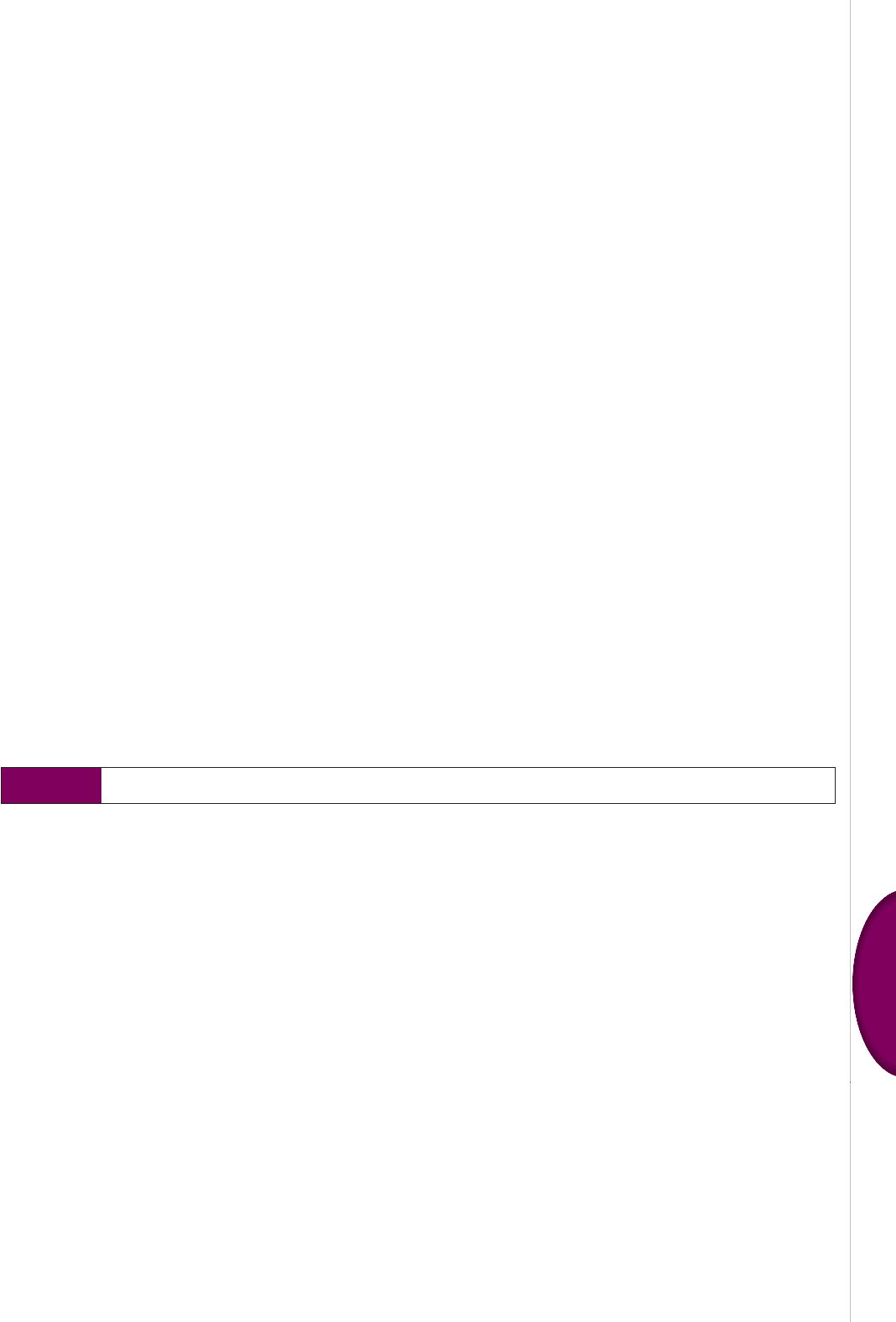
CHAPTER 13 DYNAMICS OF BEHAVIOR IN ORGANIZATIONS 399
5
Leading
some proactive approaches managers are taking to combat the growing stress level
in today’s workplace:
▪ Some companies, including BellSouth, First Union, and Tribble Creative Group,
have designated quiet rooms or meditation centers where employees can take short,
calming breaks at any time they feel the need.
56
The time off is a valuable invest-
ment when it allows employees to approach their work with renewed energy and
a fresh perspective.
▪ Wellness programs provide access to nutrition counseling and exercise facilities.
A worldwide study of wellness programs conducted by the Canadian govern-
ment found that for each dollar spent, the company gets from $1.95 to $3.75 return
payback from bene ts.
57
▪ Training programs and conferences can help people identify stress and teach them
coping mechanisms. Training managers to recognize warning signs is critical.
▪ Manager intervention is a growing trend in enlightened companies. At Boston
Consulting Group, for instance, the boss steps in if he or she sees someone work-
ing too hard or displaying signs of excessive stress. Mark Ostermann says, “It was
a great feeling [to have the boss provide support]. I didn’t have to complain to
anyone. They were proactive in contacting me.”
58
▪ Broad work–life balance initiatives that may include exible work options such
as telecommuting and exible hours, as well as bene ts such as onsite daycare
or eldercare, tness centers, and personal services such as pickup and delivery
of dry cleaning. Daily extime is considered by many employees to be the most
effective work–life practice, which means giving employees the freedom to vary
their hours as needed, such as leaving early to take an elderly parent shopping or
taking time off to attend a child’s school play.
59
The study of organizational behavior reminds managers that employees are human
resources with human needs. By acknowledging the personal aspects of employees’
lives, these various initiatives communicate that managers and the organization care
about employees. In addition, managers’ attitudes make a tremendous difference in
whether employees are stressed out and unhappy or relaxed, energetic, and productive.
ch13
A MANAGER’S ESSENTIALS: WHAT HAVE WE LEARNED?
▪ The principles of organizational behavior describe how people as individuals
and groups behave and affect the performance of the organization as a whole.
Desirable work-related attitudes include job satisfaction and organizational com-
mitment. Employees’ and managers’ attitudes can strongly in uence employee
motivation, performance, and productivity. Three components of attitudes are
cognitions, emotions, and behavior.
▪ Attitudes affect people’s perceptions, and vice versa. Individuals often “see”
things in different ways. The perceptual process includes perceptual selectivity
and perceptual organization. Perceptual distortions, such as stereotyping, the
halo effect, projection, and perceptual defense, are errors in judgment that can
arise from inaccuracies in the perception process. Attributions are judgments that
individuals make about whether a person’s behavior was caused by internal or
external factors.
▪ Another area of interest is personality, the set of characteristics that underlie a
relatively stable pattern of behavior. One way to think about personality is the Big
Five personality traits of extroversion, agreeableness, conscientiousness, emotional
stability, and openness to experience. Some important work-related attitudes
and behaviors in uenced by personality are locus of control, authoritarianism,
Machiavellianism, and problem-solving styles. A widely used personality test is
